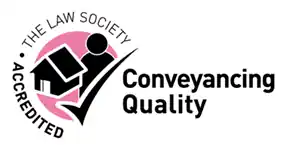Dog Bite OR Animal Attack Claims
Our personal injury lawyers can help you to make a dog bite or animal attack compensation claim for:
- the impact your injuries have had on the quality of your everyday life;
- any out of pocket expenses directly related to the accident in which you were hurt or the injuries you have suffered;
- lost income, whether through a drop in wages or pension entitlement;
- the cost of walking aids or any other specialist equipment you now require; and
- the estimated cost of providing you with ongoing care.
Where you want to claim compensation for a fatal accident, we can help you to secure a financial settlement that reflects your grief, the cost of your loved one’s funeral, any medical costs incurred between the point at which they were injured and when they passed away, together with a lump sum in recognition of the financial support they may have previously provided but from which you will no longer benefit.
We can also put you in touch with a range of support groups able to help as you adjust to life with a serious injury or without a much treasured family member. These groups include the specialist scars charity Changing Faces and bereavement organisations Grief Journey UK and Care for the Family.
Personal Injury Compensation
A compensation claim may be possible in any case where injury or death has occurred following a dog bite or animal attack for which you or your loved one were not to blame. This includes attacks that took place while in a public place, such as the local park, or while visiting someone’s home or business as an invited guest, whether socially or for work purposes.
Our dog bite solicitors can help to bring a dog bite claim where you have been bitten by:
- an out of control dog;
- a dangerous dog that should have been muzzled under the Dangerous Dogs Act 1991;
- a dog that you have been invited to pat by its handler; or
- a dog that was alone at the time of the attack.
Our animal attack solicitors can help to bring a claim where you have been:
- kicked or crushed by a house;
- kicked or crushed by a bull or other heavy livestock; or
- bitten or stung by a venomous animal.
The claim will be made against the person with legal responsibility for the dog or animal that has harmed you, many of whom are likely to be farmers or pet owners with insurance in place to cover attack compensation making it easier to achieve a swift settlement of you claim.
Compensation Amount
The amount of compensation you receive will depend on a number of things, including the severity of your injuries, the impact they have had on your life and whether or not you are ever likely to fully recover. Award amounts can vary from a few thousand pounds for minor puncture wounds not expected to cause permanent scarring to tens if not hundreds of thousands of pounds for more serious injuries likely to cause permanent disfigurement or disablement.
Time limits
You will usually have three years from the date of injury in which to make a compensation claim, although this time limit can be extended where you have been suffering from a recognised physical or mental health condition which has thus far made it impossible for you to take action.
If you are claiming on behalf of a child you will have until they turn 18 to start proceedings and if you yourself were a child at the time of the attack you will have until you turn 21 to start the claims process.
Time limits in personal injury cases are strictly enforced so it is important to seek legal advice as soon as you can.
Why choose Step Legal Solicitors?
Our lawyers are accident claims specialists who act exclusively for personal injury victims, and in particular for children who tend to be disproportionately affected by dog bites and animal attack incidents.
We have an excellent track record in achieving great results, including for people who have been told by other solicitors that they have missed the time limit for bringing a claim or who have already received a compensation offer but for an inadequate amount.
A notable client win recently achieved by our team was for a young girl left with scarring and psychological trauma after being attacked by a neighbour’s dog and for whom we managed to secure £8,000.
Why not read our success stories and client testimonials to find out more about what we are doing and what other clients think about our services.
Our expertise is recognised by The Law Society who have admitted our serious injury lawyer Anna Rushton into their Personal Injury Accreditation Scheme.
Our commitment to ensuring you and anyone else who comes to see us for help receives an excellent service and the justice they deserve is evidenced by the membership of our founding director Abid Hussain to the Association of Personal Injury Lawyers.
Legal fees
We understand that legal fees can be a big cause for concern, particularly if you are currently off work trying to recuperate or care for a loved one. That is why we offer a free initial, consultation and insurance backed no win, no fee funding which, as the name suggests, means you will not pay anything if your claim is unsuccessful and that there will be no financial risk to you in the event your case is lost. Please see our costs information factsheet for more details.
Location
Our offices are based in Crewe but we serve clients throughout Cheshire and Staffordshire and in cases of serious injury or death even further afield.
Our premises are disabled friendly, with client carparking to the rear and step-free access to our ground floor meeting room.
Home appointments can be arranged where travel into our offices is not possible, particularly where you live in Nantwich, Northwich, Sandbach, Macclesfield or Stoke-on-Trent.
Polish Clients
For Polish clients who wish to use our services, but who may struggle to understand or read English, we offer a Polish interpretation and translation service provided our Polish paralegal Agnieszka Kulas.
Any questions?
Our lawyers in Crewe will happily talk you through the legal process of making a personal injury claim but in the first instance you may find it useful to take a look at our frequently asked questions guide which provides answers to the top ten things clients normally ask us about when we first meet.
You can make a personal injury claim whenever you have been physically or psychologically injured in an accident for which someone else was to blame or where an injury has occurred as a result of a criminal act in which you were an innocent bystander.
A claim can also be made for injuries suffered by a close relative where they are unable to claim for themselves, for example due to their age, the severity of their injuries or because they have since passed away.
The type of things you can claim for will vary depending on how your injuries were caused, who you are claiming against and whether your claim is governed by English law or the law of another country, for instance where you have been hurt in an accident abroad.
In most cases a claim can be made for:
In the event of a fatal accident, a claim can usually be made for:
In the event of a criminal act resulting in injury, a claim can usually be made for:
any associated loss of earnings or out of pocket expenses.
The amount of compensation you receive will vary depending on a number of factors, including:
Compensation for minor injuries from which a full and relatively speedy recovery can be expected will typically command payments of a few thousand pounds whereas the compensation for more serious life changing or life threatening injuries can result in payments running into hundreds of thousands if not millions of pounds.
Where a claim for compensation is made against the government then the amount of compensation you receive will usually be capped. This will be the case where a claim for injuries arising out of a violent criminal act is made to the Criminal Injuries Compensation Authority and for asbestos related mesothelioma claims made under the Diffuse Mesothelioma Payments Scheme where neither the responsible employer nor their insurer can be found.
Yes. Whenever a personal injury claim is made consideration will be given to whether there is anything that can be done to help you recover more fully or more quickly. Where we believe that there are things which could help we will discuss these with the person or organisation we are proposing to sue on your behalf (or, in many cases their insurer) to see whether they would be prepared to pay for these things to give you the best chance of getting your life back on track as soon as possible.
Our request for help has to be considered seriously because under the rules which govern personal injury claims there is an obligation to assess at any early stage, in every case, whether you would be likely to benefit from any further medical treatment, rehabilitative services such as physiotherapy or counselling, mobility aids and specialist equipment or professional support while you attempt a phased return to work. These rules are set out in the Personal Injury Pre-Action Protocol and the Personal Injury Rehabilitation Code.
Generally speaking where we ask for advanced funding we get it, particularly in cases involving serious injury where the party we propose to sue is clearly at fault and acknowledges this.
We can also often secure a voluntary payment to help tide you over financially if you are beginning to struggle with a drop in wages and increased overheads. Alternatively we can seek a compulsory interim payment order from the court which will entitle you to an early payment on account of any compensation you are likely to receive.
Yes. We are always happy to provide a second opinion where you have been told by another lawyer that your case is not strong enough to proceed or where they believe the time limit for bringing a claim has expired and there are no exceptional circumstances justifying an extension.When you come to see us we will assess your case afresh and if we believe a claim is possible we will tell you
The process for making a claim will vary depending on a number of factors, including the type of injury you have suffered, whether the person or organisation we say is to blame admits responsibility and whether the amount of compensation we are trying to claim on your behalf is agreed or disputed.
Broadly speaking, when you ask us to deal with a claim we will:
signpost you to professional advisors who can help you to manage your money and set up a personal injury compensation trust if necessary to preserve your entitlement to claim means tested state or local authority benefits.
Possibly, it depends on whether the person or organisation we say is to blame for your injuries admits they were at fault and agrees to pay an acceptable amount of compensation. If they do then an out of court settlement will be a real possibility. However, in other cases a court hearing will be needed to determine your claim and decide whether or not a compensation award ought to be made.
Where attendance at court is required this should not be a cause for concern as we will be there to support you. We will explain the process, ensure your case is fully prepared and that it is presented in the best possible light to maximise your chances of walking away with a positive result.
In most cases there will be no upfront costs to pay to make a personal injury claim. This is because in the majority of cases we can deal with your claim under a conditional fee arrangement, more commonly known as a ‘no win, no fee’ deal. Full details of how this type of funding arrangement works can be found in our costs information guide, but in essence under such an arrangement we will agree not to charge you for our services if we are not successful in recovering compensation on your behalf and you will agree that if we are successful we can take a small slice of your compensation by way of reward.
Insurance will be arranged to cover any other costs which may arise and which should mean that, unless the claim you have made is fraudulent or bad in some other way, you will not be exposed to any financial risk even if your claim for compensation ultimately fails.
The time it takes to deal with your claim will depend on a number of factors, including whether the person or organisation we are holding responsible for your injuries admits they were at fault and agrees with our assessment of the compensation you are entitled to. The severity of your injuries will also be relevant, particularly where it is not immediately clear what the long term prognosis is and therefore how much ongoing care and financial support you are likely to need.
By way of example, a straightforward claim for compensation for an injury arising out of a road traffic accident, accident at work or accident at a property may take between two to 12 months to resolve where fault is admitted and the amount of compensation sought is relatively low. However, an injury arising out of a slip, trip or fall or dog bite or animal attack which results in serious injury giving rise to a substantial compensation claim may take one to three years to resolve or even longer where the case is particularly complex.
You should not be put off making a claim because of the time it may take to deal with. Once the wheels have been put in motion it is often possible for us to secure a payment on account of any compensation you are likely to receive to ensure that you can cope financially while your claim is being assessed. Immediate financial help can also usually be obtained to pay for things like private medical treatment, physiotherapy, counselling services and mobility aids which can greatly improve your chances of making a good recovery.
Yes. All personal injury claims are subject to time limits and if you fail to claim within the limit that applies to your case then there is a high probability that a claim will not be possible.
The usual time limit for the vast majority of cases is three years from the date on which your injury occurred or the date on which you became aware of the injury where it took some time to become obvious. However, there are some notable exceptions where a different time limit will apply, including:
These time limits are strictly enforced so you should take legal advice as soon as possible.
Yes, if you are on means tested state or local authority benefits and we believe that a personal injury compensation trust would be appropriate, which will generally be the case if you have received a compensation payment of more than £6,000. This is because under the rules governing means tested benefits you and anyone living in your household can only have access to up to £6,000 in capital or savings without your entitlement to those benefits being reduced and must in no circumstances have access to more than £16,000 or your benefits will be stopped.
A personal injury compensation trust is a device that can be used to help prevent your benefit payments being affected by the compensation you have received. It works by transferring your compensation into a trust which is operated by people independent of you who will manage it on your behalf and drip feed you funds as and when needed.
We will tell you where we think a personal injury compensation trust may be appropriate and help you to make arrangements for one to be established. This must be done within 52 weeks of you receiving your final compensation payment or an interim payment as appropriate.











